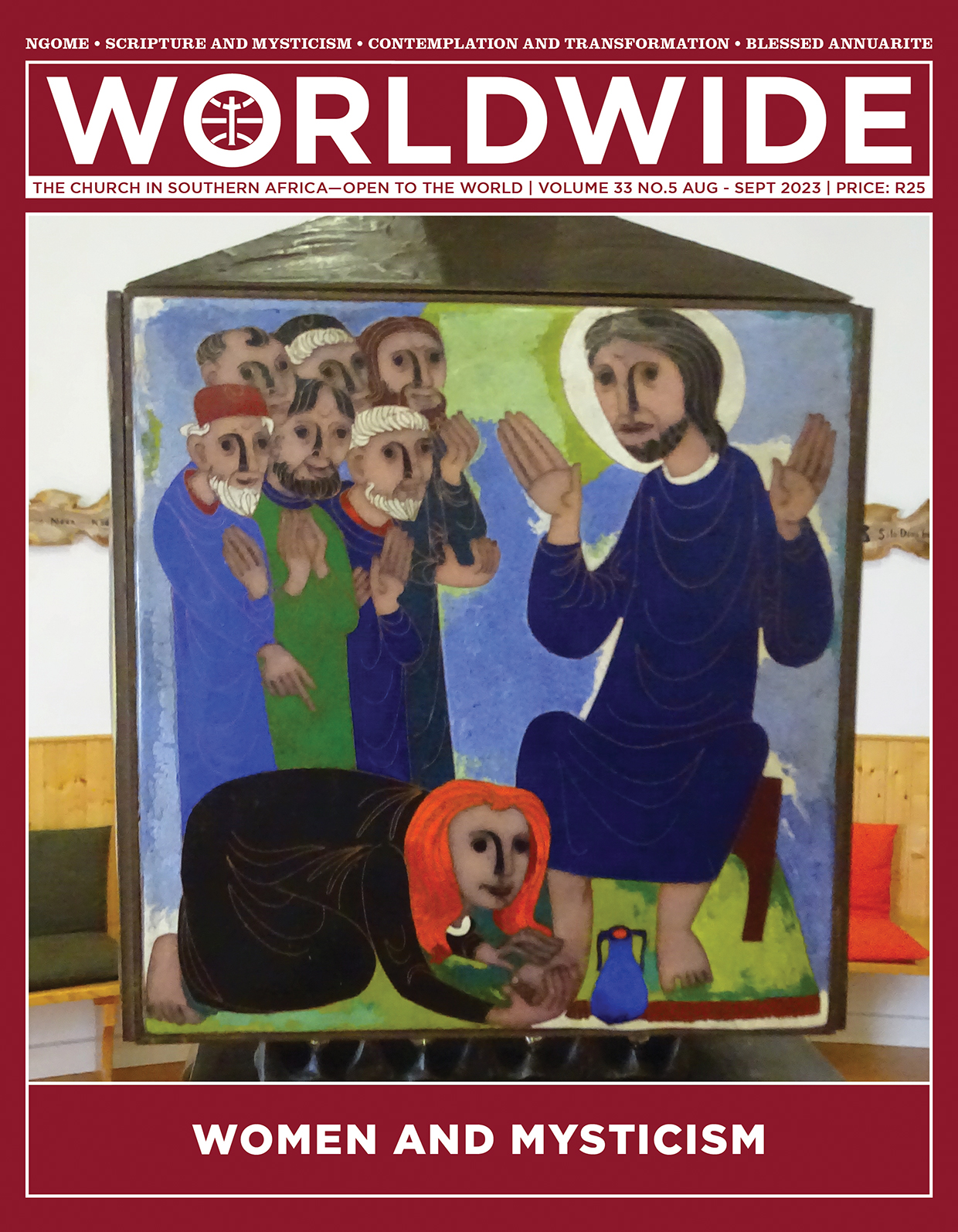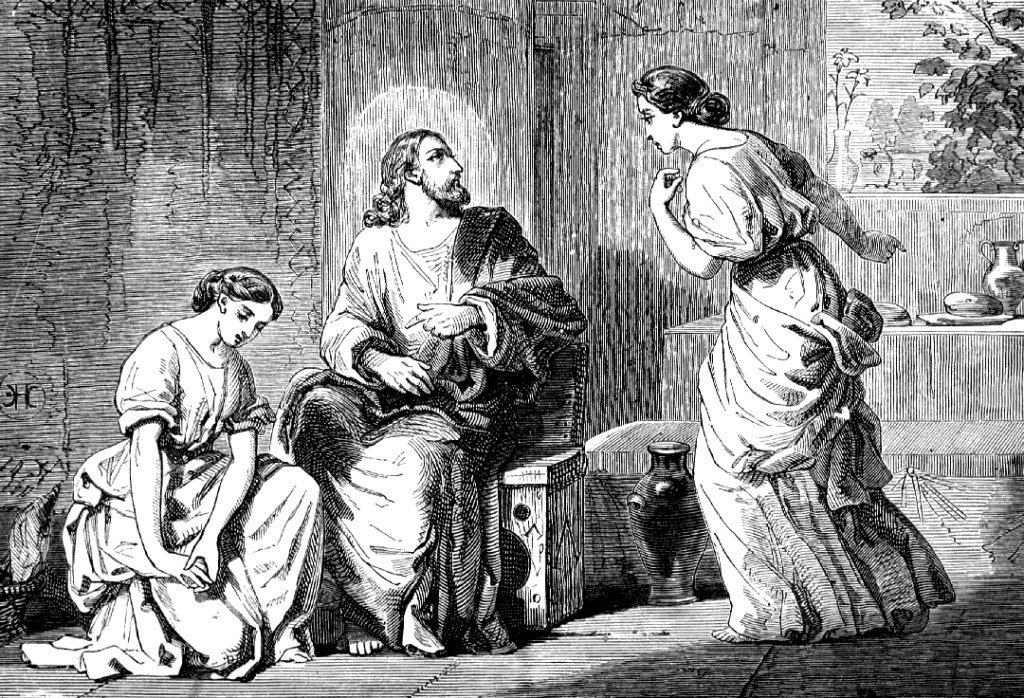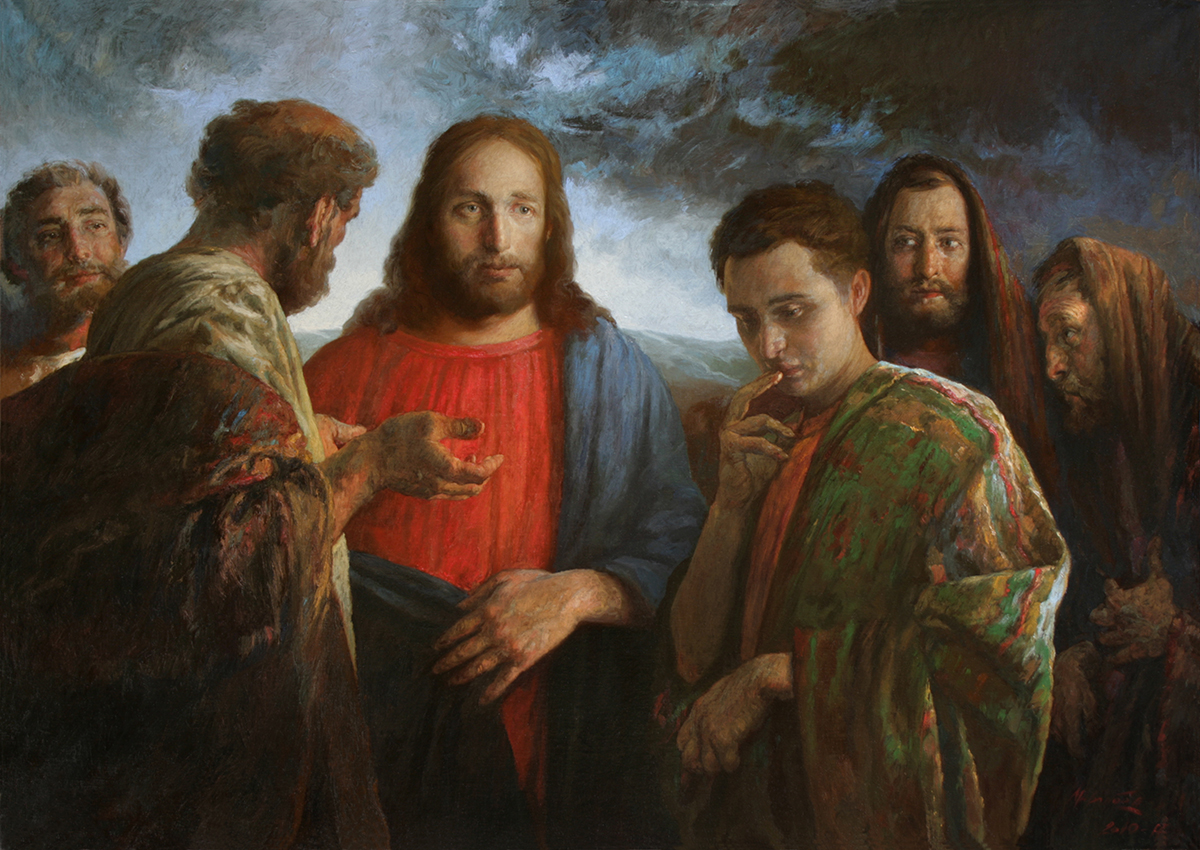
WOMEN AND MYSTICISM
Mary anoints Jesus’ feet at Bethany (John 12:1–8). The scene is part of a series which represents passages of women with a prominent role in the Scripture. The decorations are placed around the sides of the Tabernacle in the Chapel of Meditation at the University of Mystics in Avila, Spain.
Mary listens to and manifests her love for Jesus. Contemplation becomes the mesh in which her Spirit-led actions find their meaning and support.
THE LAST WORD

Sitting, she listened to His word (Lc 10:38- 42)
BY Fr Silvano Fausti SJ | Biblist and writer
THE PASSAGE follows the story of the Good Samaritan with the same theme of welcoming. Jesus is received with criticism in the house of Pharisees (Lc 7:36ff; Lc 14:1ff), and in the house of sinners with joy (Lc 5:27ff; Lc 19:1ff). Now Martha hosts Him, but the real welcome is offered by her sister Mary.
Martha represents a certain Israel: all busy doing many things for the Lord; she observes the 613 precepts to prepare for her encounter with Him, but she did not notice that He has already come. Mary is the Israel who knows of her Lord’s visitation. Like Mary of Nazareth, she says “Here am I” and welcomes His Word. She stops all other services and rejoices in the presence of the Bridegroom, whose joy is the bride´s delight. She sits at His feet and listens to His voice. The wedding has come (Lc 5:34): from being a disciple of the Law, she becomes a disciple of the Lord.
The house of Martha—as the house of Mary! —is that pandocheîon (lodging place) between Jericho and Jerusalem where Jesus, the Samaritan, stops with His burdens and rests. Welcomed, it is He who welcomes and teaches the mystery of the Father and the Son to His listeners: He heals them with the balm of His presence, intoxicates them with the wine of His word, that they may follow Him on His journey.
Mary, sister of Martha and Lazarus, is the same one who in Jn 12:3 performs the anointing of Bethany narrated by the other two synoptics (Mk 14:3-9; Mt 26:6-13). She could be the one (Lc 7:36ff) who sprinkles with tears and dries with her hair, perfumes and kisses the feet of the one who has walked so far to be near her. Now, reconciled, she has a home to welcome Him. She enjoys His love, heedless of the good Martha’s displeasure. Jesus approves her without reservation!
The passage reminds us of the foundation of our discipleship. It does not consist in the things one does—while necessary and very important! —
but in listening to Jesus
His presence is a joy for Mary and toil for her sister Martha. The two are not in simple opposition: they are sisters! Jesus will call Martha back to become like Mary. It is not accurate to contrast Martha and Mary as action and contemplation. Luke simply wants to purify action into contemplation. The source of Mary’s action is listening to and rejoicing in the Bridegroom. By recognising and being close to the One who has become close to her, she is able to do what He says, “Go, and do likewise” (Lk 10:37). Her action will flow from contemplation, and she will never detach herself from it: she will always remain “contemplative even in action.” In her we see the reversal wrought by the gospel; she can finally love and welcome because He first loved and welcomed her (1 Jn 4:10). Mary’s absolute silence, doing and saying nothing, is the perfect “denying” of her own self (Lk 9:23). Forgetful of self, she is fulfilled in the highest form of life: she is for the other and from the other, all intent in the one who listens, all welcomed in the other who welcomes.
In Mary who “hears” and “sees” Jesus, there is the consummation of the disciple’s bliss: seeing and hearing the Lord. The passage reminds us of the foundation of our discipleship. It does not consist in the things one does—while necessary and very important! —but in listening to Jesus.
His word is the Father’s first work of mercy toward all His children. That is why the disciples say, “It is not right that we should neglect the word of God for the service of the tables” (Ac 6:2). For “not by bread alone does man live” (Lk 4:4), “but by every word that proceeded out of the mouth of the Lord” (Dt 8:3).

